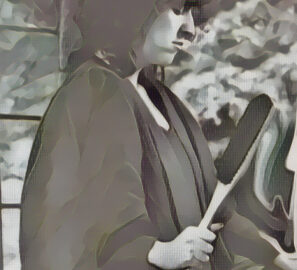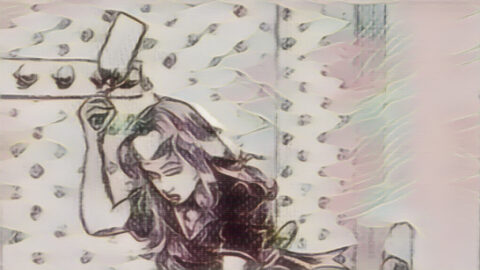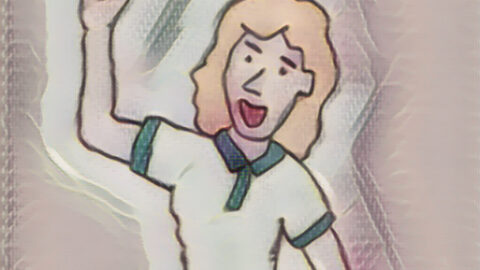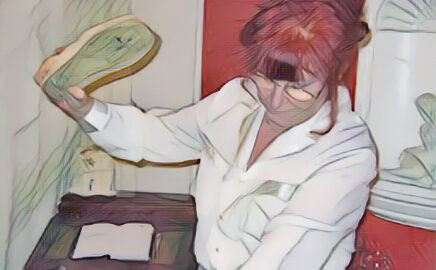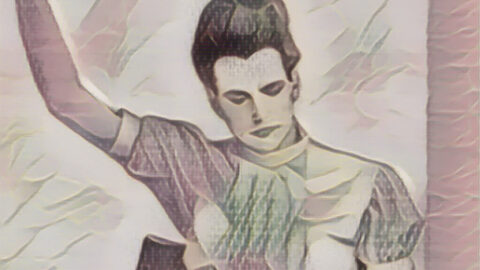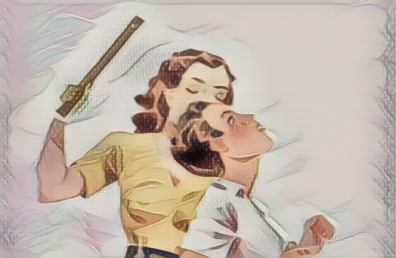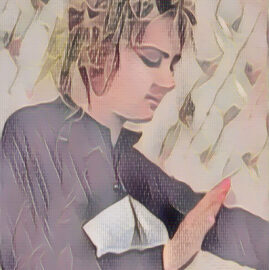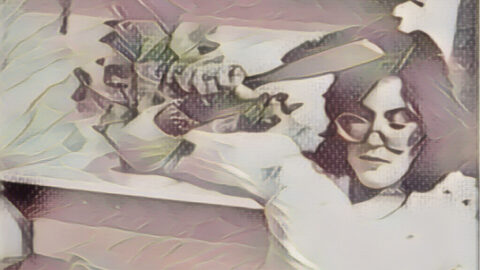(gap: 2s) There exists a term, perhaps unfamiliar to some, known as ‘Third Culture Offspring.’ This phrase refers to those of us who spent our formative years in lands and cultures not our own by birth, family heritage, or even the nationality inscribed upon our passports. Imagine a childhood marked by perpetual movement, a constant need to adapt, to learn new customs, and yet never truly feeling a sense of belonging. Children of military families are one such example, but there are others—such as those raised within insular religious communities, or indeed, within cults. I am among the latter. (short pause)
(pause) As I compose these reflections, I find myself contemplating the peculiarities of my own inclinations. I possess a fascination with discipline, and I have often wondered if such interests are common among those of us who grew up in ever-changing circumstances. When one’s world is in a state of constant flux, perhaps one begins to yearn for order and structure so deeply that it becomes a source of longing, even idealization. The boundaries we lacked in childhood become those we ponder most as adults. (short pause)
By the time I departed from the religious community of my youth, I had already resided in Japan, Macau, Libya, Portugal, Mexico, Thailand, Poland, Italy, Argentina, and the United Kingdom. My parents are both Scottish, and I hold a British passport, yet the country in which we lived seldom altered the rules regarding corporal punishment. Regardless of our location, the younger children—myself included—were subject to discipline. However, the methods, the rituals, and the individuals who administered them varied from place to place, from one community to another. (pause)
In Italy, our daily lives were largely overseen by ‘Auntie Kita’ and ‘Uncle Jose.’ Auntie Kita was gentle, at least in comparison to others. Her approach to discipline was almost ceremonial: she would seat herself, draw you across her lap, and deliver ten or so firm, yet not severe, spanks. There was a curious comfort in her routine. Her discipline never left bruises, only a gentle warmth—a reminder, but not a punishment that lingered in pain. She was kinder than most, and I recall feeling a certain gratitude for her gentleness, even as I dreaded the experience itself. (pause)
Uncle Jose, by contrast, was different. He employed his belt, yet still kept you over his knee, as if to preserve a sense of intimacy in the act. The belt would sting, sometimes leaving small marks, but it was never unbearable. There was a peculiar duality in his manner—firm, but not unkind. Then there was Uncle Peace. His chosen implement was a wooden spoon, which he wielded with a certain fervor. He would continue until he heard what he termed a ‘broken cry’—a sound that signified true surrender. I dreaded being disciplined by Uncle Peace, but even as a child, I found myself strangely preoccupied with the ritual. On occasion, I would transgress minor rules in his presence, half-expecting one of his formidable spoon spankings, even as I feared them. (pause)
Uncle Peace’s discipline was a spectacle unto itself. He would summon you into a small, dimly lit room, the air heavy with the scent of aged wood and musty books. The wooden spoon, polished and worn from years of use, would glint ominously in the subdued light. He would seat himself upon a sturdy wooden chair, its legs creaking beneath him, and beckon you forward with a single, commanding gesture. The anticipation was almost as difficult to bear as the act itself. (pause)
Once across his knee, you would feel the cool, smooth surface of the spoon against your skin, a stark contrast to the warmth that would soon follow. The first strike was always the most startling—sharp, sudden, and intense. Each subsequent spank would build upon the last, a crescendo of sensation that seemed to reverberate through the room. Uncle Peace’s expression would remain composed, his eyes intent, as though he were performing a solemn duty. The sound of the spoon meeting flesh formed a rhythmic, almost hypnotic pattern, each strike accompanied by your own gasps and cries. (pause)
In Japan, the approach was different once more. I spent time in a camp for young people, where discipline was both public and severe. Paddlings administered before one’s peers were not uncommon. I recall my first day there—my independent spirit led to immediate trouble. Two gentlemen, previously unknown to me, decided to make an example of my behavior. One bent me over a chair, while the other delivered six firm swats with a large wooden paddle, its surface punctuated by holes. The pain was sharp and immediate, and the marks remained for days. The embarrassment of being punished in front of others was nearly as acute as the physical discomfort. (pause)
When I finally left the community, I returned to the United Kingdom, determined to create a new life. I sought qualifications, a sense of normalcy, and, in time, I found a husband. Yet adulthood brought its own challenges. Despite my years, I realized how little I understood about raising children, about what was considered customary or acceptable. My own childhood had been so far removed from the ordinary that I felt adrift, uncertain of how to guide my own children. (pause)
It is a peculiar thing, attempting to discern what is normal in a country one scarcely knows. I had spent only about eight months living in the United Kingdom as a child. The culture in which I was raised was deeply flawed, but it was all I had ever known. Recently, I sat down with my parents and inquired how they might have raised my siblings and me had we not been part of the community. We engaged in a long, candid conversation. I asked about discipline, and my mother replied, “Even before I joined, I believed in a good, firm spanking for naughtiness.” (pause)
Thus, it appears that even had I grown up in the United Kingdom, I would have been subject to sound discipline. Yet I cannot help but wonder—would I have come to view it as I do now? Would the act of accepting discipline have become so essential, so central to my sense of self, had I experienced a more conventional upbringing? These are questions for which I shall never have answers. The past is a country to which I cannot return, and the mysteries of my own inclinations are woven into its landscape, forever beyond my reach. (long pause)


















































